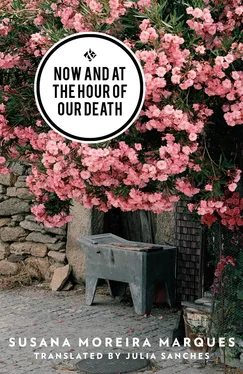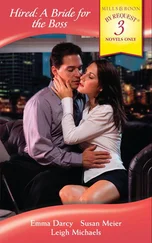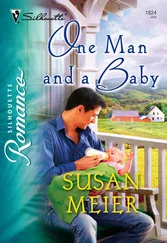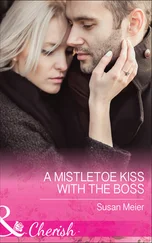When I got a little bit better, I met a couple from here, from Miranda, at the shelter — they’d come up from the south of Angola to spend Christmastime in Luanda. They told me to head on down there, that the land was good and the weather, too, so I packed up all my things and off I went. I left Luanda on the last day of December, 1962, and got to Hoque on the first of January. It was sixty kilometers from Sá da Bandeira — they call it Lubango now. Hoque is a thousand kilometers from Luanda by truck, clunkclunkclunk… I got taken there by a trucker, and he said to me: look here, if you’re not doin’ so good, I’ll be back before too long to pick up some tobacco, you can hitch a ride real easy and meet me in Quilengues and I’ll take you to Luanda — that way you can head on back to Portugal. As soon as I picked up a hoe I didn’t feel so good, and I thought, I gotta get outta here.
I had five hundred escudos on me, no more than that, but I had asked my sergeant cousin for three contos — speaking in contos . He’d already sent it and I’d set it aside for the trip back. Meanwhile there was this bout of bad weather — even the telephone lines collapsed with all the wind and rain — and all communications got cut. So I stayed.
HER: Eleven months to the day after he got to Angola, that’s when I arrived with our three kids, one was six years old, the other four, and the last one still a babe in arms. I went from here to Vimioso, and from Vimioso to Duas Igrejas to take the train to Porto, and in Porto we switched trains and then we went to Lisbon to get on a boat. The only downside to the boat trip was it was so short. It only lasted eleven days, and that was the first vacation I ever took in my whole life: I didn’t cook, didn’t wash no dishes, all I did was wash the kids’ clothes. I wasn’t scared, either. The sea was smooth as a blanket. I gave the cabin attendant a fat tip, so we weren’t short of food: cheese sandwiches, milk, fruit for the kids, he’d bring me anything I asked for. The kids said: Mom, Mom, the boat’s gonna sink! And I’d just say to them: no, it won’t, darlings, no, it won’t.
HIM: Later, a man who died the day I come back here sold me some land for thirty contos, speaking in contos. I had to borrow money, even had to pawn my rifle… I lived through eighteen fierce months… And then there were even folks that said: Senhor João, he’s a good man, sure, but it’d be better if he were a bad man — meaning I should’ve been different — he’s a real good man, but he’s got a chipembe there, a bad bit o’ land where nothing will grow. We had us an irrigation ditch and a shack, but no roof. Had Zé been born yet?
HER: No, Zé were born later.
HIM: So I built us a roof. We could plant potatoes there and settle down, our kids and us.
HER: We daubed the room and got it all cleaned up real nice.
HIM [laughing]: And then it started raining, but as the cob hadn’t set, it rained inside! We were there for a whole other year. Then I said: I’m gonna build us another shack down there, where it’s proper. And we was there another one, two years before we finally started harvesting crops and making a decent living…
HER: Then we built ourselves a house, and that was that.
HIM: We built a real sturdy house. It wasn’t nothing fancy, but it was a real nice little place, in a good spot. The porch was kind of like this one, actually.
HER: The porch was just like this, yeah.
HIM: And then they started saying, Senhor João, now that there’s a lucky man. I harvested wheat when folks thought there was no wheat to harvest.
HER: We still had to dig plenty more ditches…
HIM: …I ended up irrigating some real good hectares of land. There was one year I harvested one thousand bags of corn weighing around 90 kilos each and fifteen bags of beans weighing 130 kilos each, or maybe even more. We grew potatoes, wheat, corn, and beans. I built myself up a desirable farm there, and bought myself a pick-up, a tractor — I had almost a hundred cattle, and when I was just starting to think of getting a bigger truck…
HER: …They opened up an airlift when decolonization began.
HIM: One day one of my kids came up to me and said: look, Pa, our chests aren’t made of bronze and if everyone’s leaving, we’re leaving too… There was lines and lines of cars kilometers and kilometers long and they was laden with stuff — biquátas as we used to call it — just whatever they had, ready to load onto the boat, or take through South Africa.
HER: There were folks even managed to get tractors and trucks through.
HIM: A boy from here had a pick-up and a tractor just like mine. He sold his tractor, figured a way of bringing the pick-up back, then managed to start his own business. He did alright for himself, but he’s dead now, too.
HER: My father used to listen to the radio a lot and he heard what was going on in North Africa and thereabouts…
HIM: He had sent us a letter saying he didn’t want us to write him back, he just wanted us to go get him in Portugal. That there was the only time I come back to Portugal while I was living in Angola. As luck had it, when I got to Bragança it was snowing — I shook in my boots, and my teeth were all clattering…
HER: … And because my father listened to the radio so much, he got this idea in his head that they was killing folks by the dozen and he got scared, so he said: if you don’t want to go back to Portugal, I’ll go on my own and figure something out for myself. And I told him: now hold your horses, when we go, we’ll go together, and if we die, we’ll die together, and if they kill us, they’ll kill us all together.
HIM: One of my men told me: you can’t go, boss. I know a place in Quilengues, and you got flour, so take two or three bags of flour there and a sack of fish and then stay there till this here blows over. Alright, I said, and I told him I just had to take my family to Luanda and I’d be right back — I didn’t want to have my arm twisted… After independence — if things got better — I intended to come back.
HER: While we were packing our trunks to take on the boat, three blacks came up to the house…
HIM: …They were part of UNITA, and were fleeing the skirmish in Sá da Bandeira.
HER: Folk in Hoque were MPLA and those men, they were from the UNITA and they were on their way to meet the rest, who were in Cacula…
HIM: About thirty kilometers from there…
HER: …But they weren’t taking the roads, they was sticking to the bush. They’d left their uniforms and hidden their guns and then they came knocking at our door. They knocked and I said, what is it? What’s going on out there? Senhora, could you spare us some fubá?
HIM: They called cornmeal fubá.
HER: Sure I can, and I did. I gave them some fish, too. They tried paying me, tried giving me twenty-thousand réis. And I told them no, I don’t want nothing, go on, go fill your bellies, go eat in the bush, go, go fill your bellies, ’cause I don’t need nothing, not me. I don’t know how many times they must’ve said, may the Lady protect you, may Our Lord keep you, God in heaven protect these good people. My eyes filled with tears.
HIM: I couldn’t steal from them, take advantage of them. I didn’t have it in me. It ain’t right of me to say this, but I’ll say what I feel: there was folk out there who — I don’t even know how to say it…
HER: … Who were thugs.
HIM: When it was us who was on their land… It was sickening. Them folks went there to set a bad example. And they paid for it with their lives.
Читать дальше












